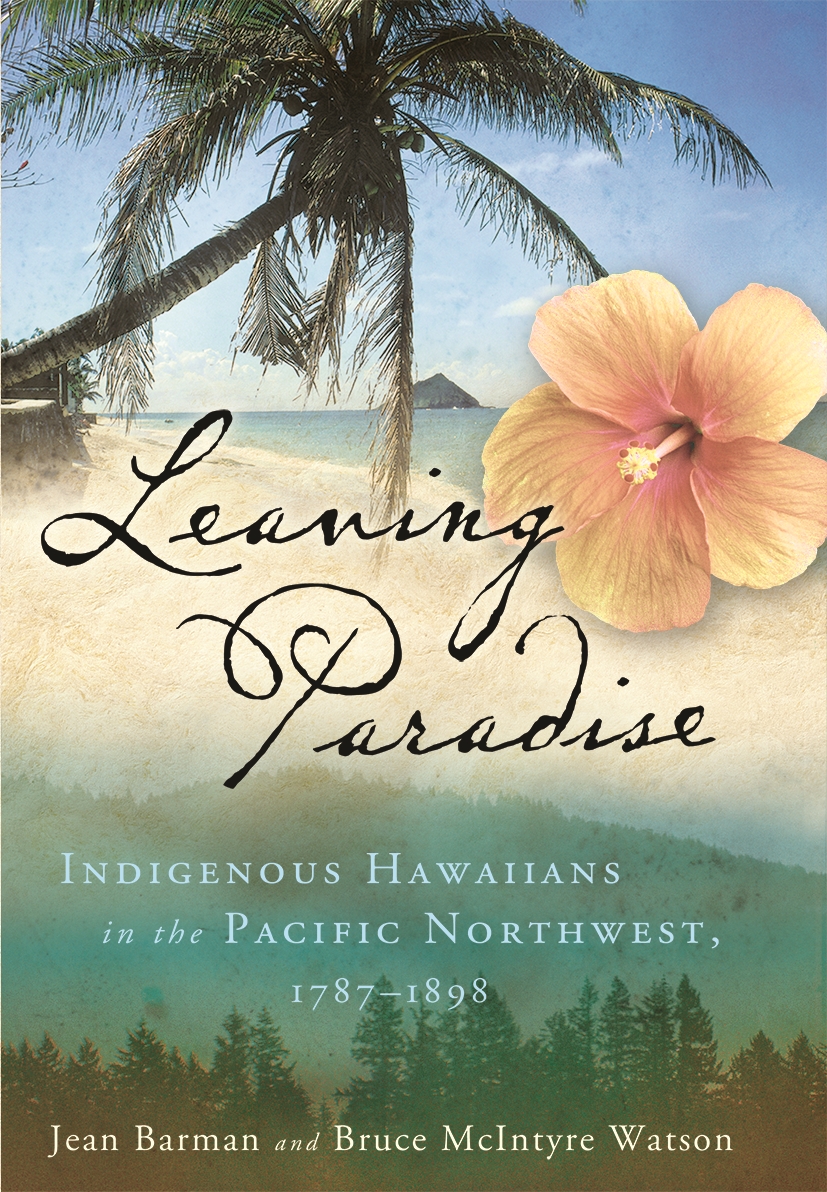Leaving Paradise: Indigenous Hawaiians in the Pacific Northwest, 1787–1898
- About the Book
-
Native Hawaiians arrived in the Pacific Northwest as early as 1787. Some went out of curiosity; many others were recruited as seamen or as workers in the fur trade. By the end of the nineteenth century more than a thousand men and women had journeyed across the Pacific, but the stories of these extraordinary individuals have gone largely unrecorded in Hawaiian or Western sources. Through painstaking archival work in British Columbia, Oregon, California, and Hawaii, Jean Barman and Bruce Watson pieced together what is known about these sailors, laborers, and settlers from 1787 to 1898, the year the Hawaiian Islands were annexed to the United States. In addition, the authors include descriptive biographical entries on some eight hundred Native Hawaiians, a remarkable and invaluable complement to their narrative history.
“Kanakas” (as indigenous Hawaiians were called) formed the backbone of the fur trade along with French Canadians and Scots. As the trade waned and most of their countrymen returned home, several hundred men with indigenous wives raised families and formed settlements throughout the Pacific Northwest. Today their descendants remain proud of their distinctive heritage. The resourcefulness of these pioneers in the face of harsh physical conditions and racism challenges the early Western perception that Native Hawaiians were indolent and easily exploited.
Scholars and others interested in a number of fields—Hawaiian history, Pacific Islander studies, Western U.S. and Western Canadian history, diaspora studies—will find Leaving Paradise an indispensable work.
- About the Author(s)
-
Jean Barman, Author
Jean Barman writes about British Columbia history. A fellow of the Royal Society of Canada, she is the author of, among other books, The West beyond the West: A History of British Columbia (University of Toronto Press).Bruce McIntyre Watson, Author
Bruce McIntyre Watson is a Vancouver, BC-based historian whose 3-volume biographical dictionary of the fur trade in the Pacific Northwest published in 2010. In 2000 he and coauthor Jean Barman received the Charles Gates Memorial Award for best article published in Pacific Northwest Quarterly from the Washington State Historical Society.
- Reviews and Endorsements
-
- Leaving Paradise rescues a large and important Pacific Northwest community from relative obscurity. . . . The section entitled ‘Hawaiians and Other Polynesians in the Pacific Northwest’ [is] particularly noteworthy. This appendix takes up approximately half the volume, and consists of detailed entries of all the people that the authors were able to track. This section is a remarkable sharing of the authors’ database of the region, and though not primary source data, it is very close.
—Mike Evans, The University of British Columbia, Pacific Affairs, 80:2 (Summer 2007) - Barman and Watson mined all extant sources to follow Hawaiian migration and subsequent settlement in the Pacific Northwest, including an extensive and exhaustive listing of individual arrivals, employment history, residence, and marriage and family patterns. The authors conclude that, despite racial discrimination in Canada and the United States, this is an immigrant success story, proof of ‘what might have been in the Hawaiian Islands themselves.’
—Sandra Wagner-Wright, University of Hawai‘i at Hilo, Pacific Historical Review, 76:4 (November 2007) - Barman’s and Watson’s extensive research in fur trade and missionary records is truly impressive and is especially evident in the eight hundred or so biographical entries that compile the second half of the book. . . . [T]he fascinating sections on how many Hawaiians married indigenous men and women and melted into Northwest Native communities demonstrates the fluidity of ethno-racial categories and identities in this period and signals an important issue in need of further exploration.
—Lissa Wadewitz, Stanford University, Western Historical Quarterly (Winter 2007)
- Leaving Paradise rescues a large and important Pacific Northwest community from relative obscurity. . . . The section entitled ‘Hawaiians and Other Polynesians in the Pacific Northwest’ [is] particularly noteworthy. This appendix takes up approximately half the volume, and consists of detailed entries of all the people that the authors were able to track. This section is a remarkable sharing of the authors’ database of the region, and though not primary source data, it is very close.
- Supporting Resources
-





